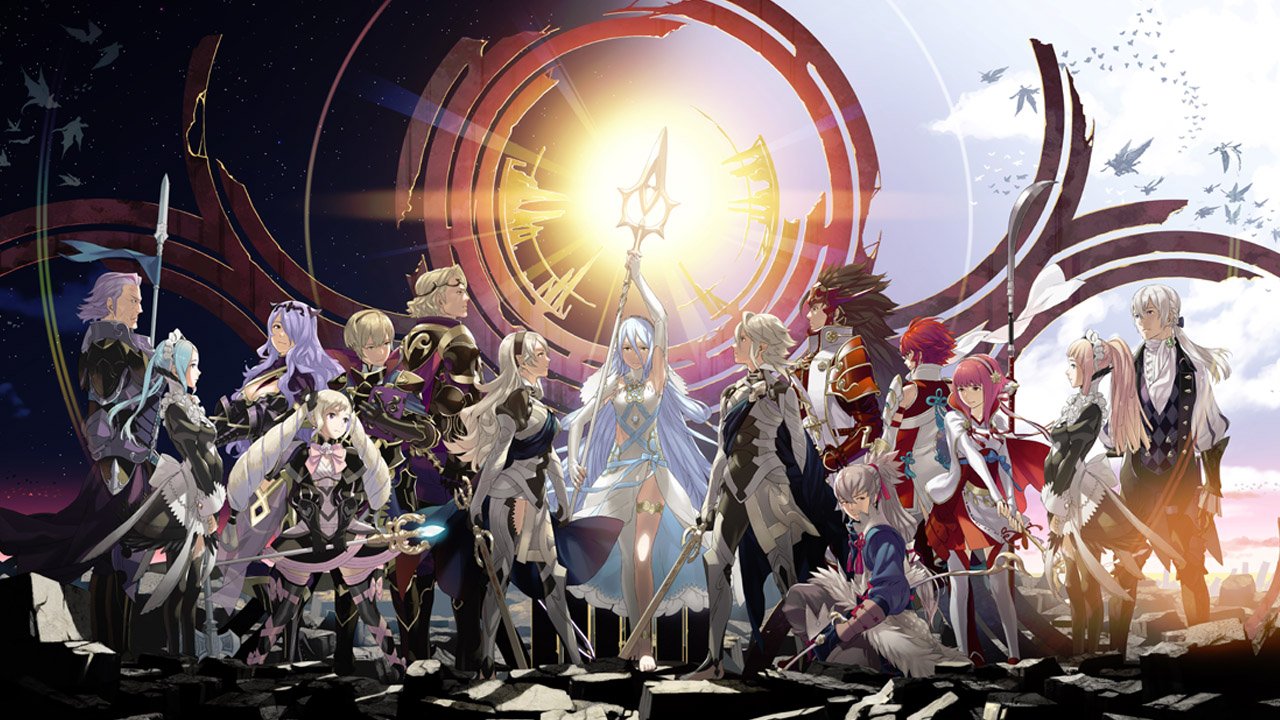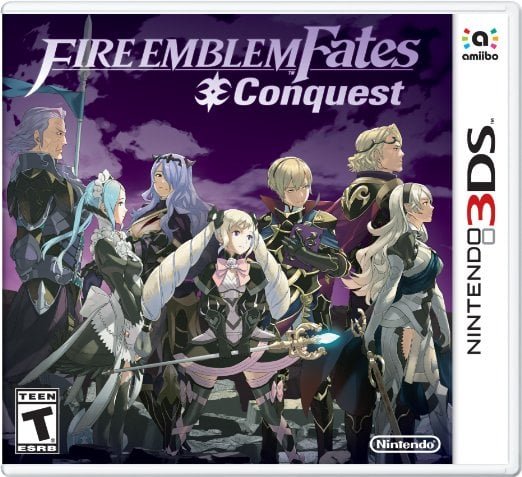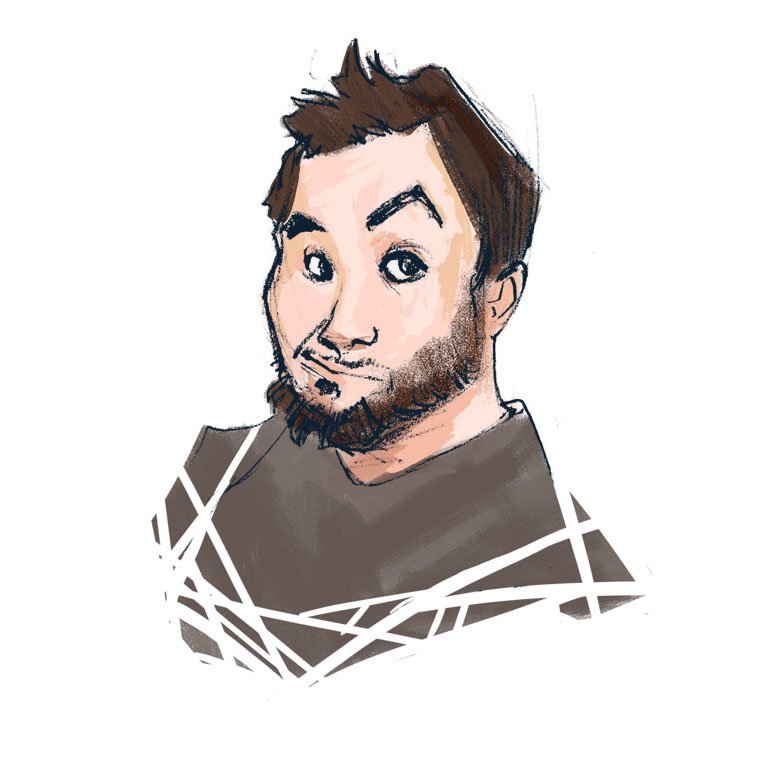I really believe that Fire Emblem: Awakening was an important title not only to the series, but to the 3DS as well. It brought the franchise out of fringe popularity and made it more accessible to newcomers, as well as being one of the first truly amazing games for Nintendo’s handheld at a time when the company was starved for quality. So to say I went into my review for that game’s successor with high expectations may be an understatement—to say the least. With such pressure, it would be easy for any game to fall flat, but by building on a strong formula, Fire Emblem Fates: Conquest is better than its predecessor in almost every way imaginable.
As the youngest prince of the nation of Nohr, and despite the dragon blood coursing through your veins, your family, and especially your father, do not take you very seriously. That’s never actually said outright, but even as the story progresses, it always feels like your older siblings talk down to you or make you feel like you’re not good enough. To an extent this makes sense; you were coddled your entire life, and never allowed to leave your castle. All your brothers and sisters however, go to battle pretty frequently. Regardless, when you finally are deemed ready to fight, you’re kidnapped after the battle and brought face to face with the leader of Hoshido—the nation your country has been at war with for years. You discover that you were actually taken away from your true home as a young boy and the state has been trying to get you back ever since.
Now you’re home where you belong.
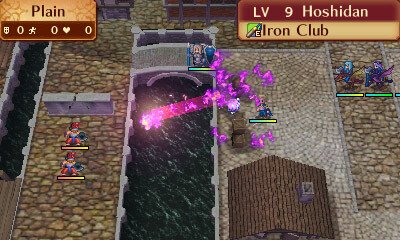
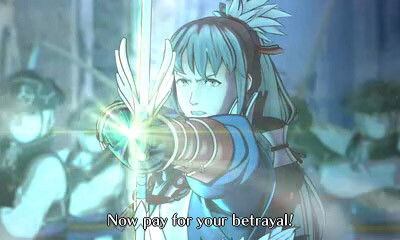
While you’re visiting your new family you learn about your pseudo-home’s atrocities and how the side you fight for isn’t necessarily right. So, you choose to go back and try to change Nohr from the inside. This doesn’t sit well with the royal family of Hoshido, which leads to more conflict.
Unless you want to pay $24.99, then you can stay with your blood relatives and take a stand against those who raised you.
This is something that loomed over my head my entire play-through. I never really got to play the storyline I wanted to, and I would have to pay extra for that privilege. I understand this is indicative of a much more common trend; DLC is just a thing I have to accept, and the toys-to-life genre has made a killing on dangling new worlds and levels for a price for years now—but it just feels dirty. It’s only one decision, but it felt so out of place that it compromised some of the game’s integrity.
Instead, I was forced to go back to Nohr, confront my jerk-face father who wants me dead, and constantly go on suicide missions so he can lead me on and make me suffer as part of some divine plan. I found the plot extremely interesting as the war loving Nohr kingdom seems to be based more on Western designs in both armour and architecture, while Hoshido is clearly inspired by Japanese history. It’s almost as if developer Intelligent Systems has something to say about eastern and western philosophy. Part of what makes the plot so great is it gives you an excuse to fight, with each chapter setting up a reason to walk into battle. Ideally, you would try to solve these global issues with words, but that’s not how the world works. So pick up a sword and grab some friends because there’s a turn based battle waiting after every conversation.
And I’m so okay with that, because, let’s be honest, no franchise does strategy like Fire Emblem. The battle system is pretty similar to what we saw in Awakening. You move your units, pair them up, and slowly make your way through your enemies. The twist here is as the main character; you control your own army, which is a franchise first; usually your character is merely brought along into battle.
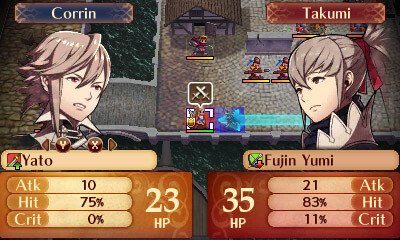
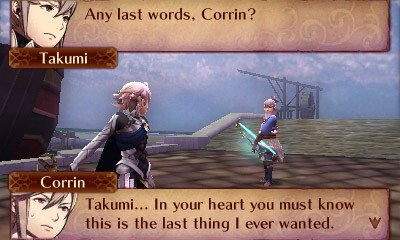
You also turn into a dragon. If that isn’t the most badass thing ever then you need to re-evaluate what you think is awesome. Interspecies morphing aside, units can build relationships that grow throughout the fight and the more they trust each other the more helpful they become. You’ll need all your units at their best as each battle does take a degree of thought. As in previous entries, certain weapon types work better against others, and different classes can take more damage while others can evade quicker. That class system is pretty standard for the franchise at this point, but it’s so polished that you never feel like you’ve been cheated when you lose. Between battles, players can cool off with returning gameplay mechanic “My Kingdom”, a completely customizable hub world where you can build shops, decorate and defend. It’s actually a really nice change of pace, and is more than just “that spot you have to go to after battles”. Much like everything else in this title, this realm fits and compliments every other part of the game. Whether you’re using it to get new weapons and armour, or you’re holding off some dirty invading streetpassers, there’s always something to do and feels like a natural progression throughout the game. It’s also rewarding to see everything slowly come together.
I couldn’t put this game down. Admittedly, I had to start over immediately after I made the big decision, but that was more my fault than the game’s. That being said, I really wish this was shipped as one complete experience– players can get that with Fire Emblem Fates: Revelations, or by purchasing the DLC. However, even without the extra content I had fun, and I do want to play it again from the perspective of the other storyline. I loved the characters and the camaraderie between units and my character with his siblings. I loved the down time, the action, and everything in between. I loved how this game gave the 3DS a shot of adrenaline after it slowed down in its output of really strong titles. Fire Emblem Fates: Conquest is another feather in the cap of Nintendo and is another top-notch title on the 3DS. It lives up to its franchises reputation and even if you don’t want to spend the extra money to unlock the entire experience, the individual game without the DLC is worth it.
